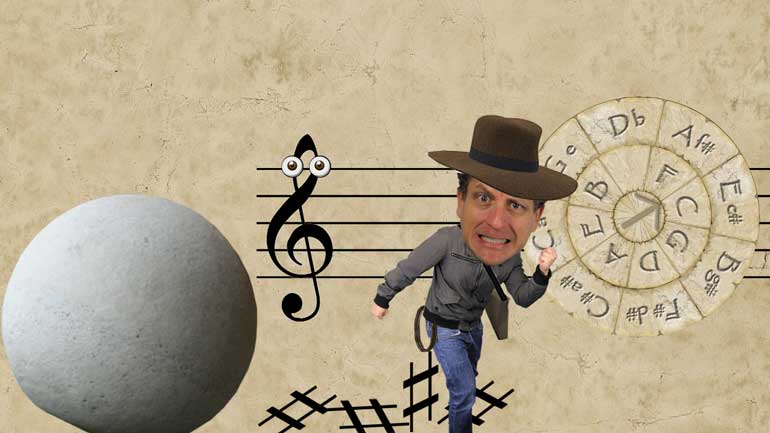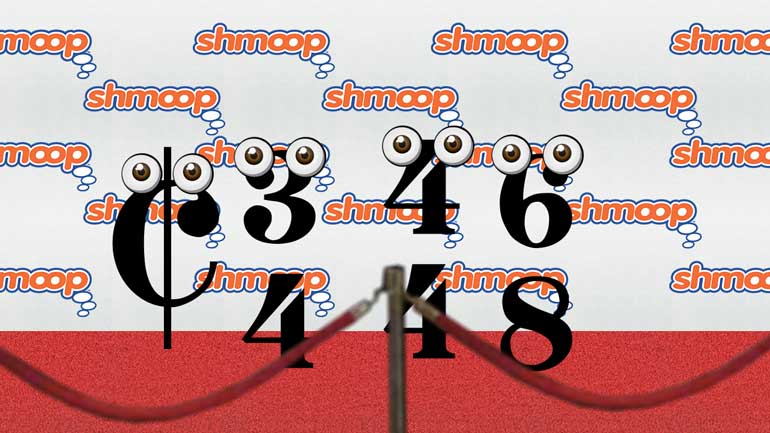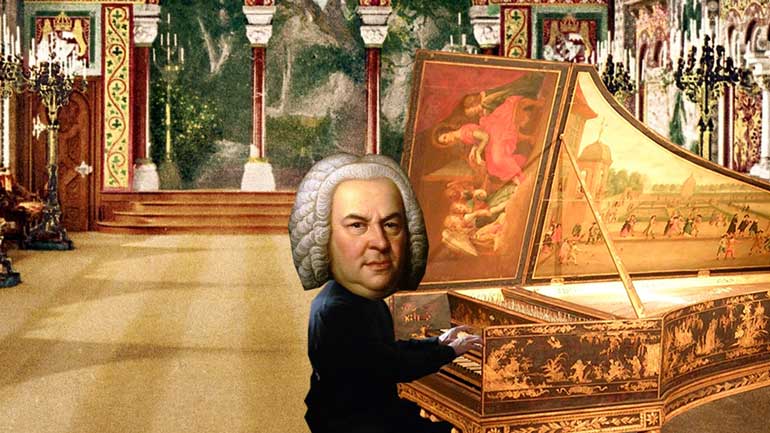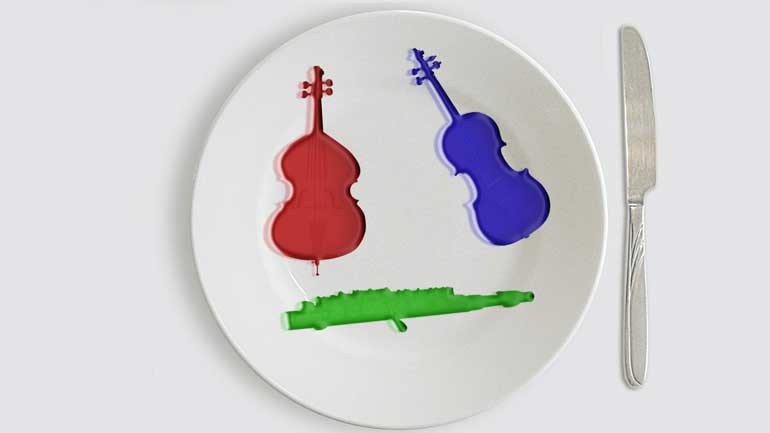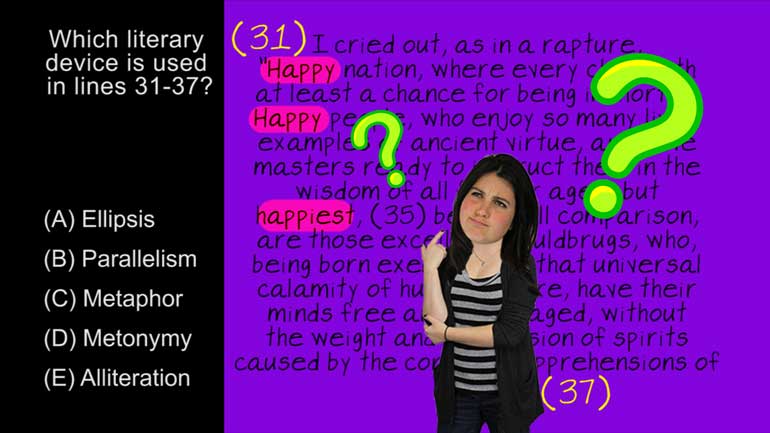ShmoopTube
Where Monty Python meets your 10th grade teacher.
Search Thousands of Shmoop Videos
AP Music Theory Videos 12 videos
AP Music Theory 3.3 Score Analysis. Which of the following answers names the cadence that moves from IV to I?
AP Music Theory 3.5 Score Analysis. What kind of chord is shown above?
AP Music Theory 3.2 Score Analysis. What notes would have sharps in the key of c sharp minor?
AP Music Theory 1.3 Aural Skills 3 Views
Share It!
Description:
AP Music Theory 1.3 Aural Skills. Which of the following is played in the video?
Transcript
- 00:04
here's your shmoop du jour brought to you by tone clusters part of [Person pouring tone clusters into bowl]
- 00:08
a healthy balanced breakfast this question is based on an excerpt
- 00:13
that will be played twice determine the intervals being played and choose the
- 00:17
correct notation for the audio sample
- 00:25
alright which of the following is played hmm and here are your potential answers
Full Transcript
- 00:30
well that's one jazzy chord anybody else feel like shaking [Man dancing]
- 00:35
their hands vigorously just us? spoil sports but what makes that chord
- 00:40
sound so jazzy easy it's a dominant seventh chord remember that's a regular
- 00:45
major triad topped by another minor third interval or the seventh of the [minor interval falls on regular major]
- 00:50
chord put it together and what have you got bippity-boppity-boo or you know a
- 00:54
dominant seventh chords potato, potato anyway all we need to answer this
- 00:59
question is to see which of our choices is a dominant seventh chord easy peasy [Seventh chord having photo taken]
- 01:03
lemon alright all four answers are the same dominant seventh chord on e just in
- 01:09
different inversions, that chord just can't stand still okay so we have to figure
- 01:14
out if what we're hearing is in root position or an inversion which is
- 01:18
basically musical gymnastics yeah we can determine which order the notes are [People in gymnastic formation]
- 01:23
stacked in by listening for the tone cluster and no despite what we all want
- 01:28
to believe that's not a cereal, it's actually a way to describe two or more
- 01:32
notes that are very close together....listen again do you hear the
- 01:35
slight tension in this chord now that interval is a major second which means
- 01:41
we have a tone cluster alert but a dominant seventh chord in root position
- 01:46
is made up of ascending thirds and has no secondsand therefore no tone clusters [Thirds appear on chord]
- 01:52
that eliminates A... A first inversion dominant chord does have a tone cluster
- 01:56
which results in the major second being perched on top of the chord listening [Tone cluster appears on top of the chord]
- 02:00
closely are there any notes below the tone cluster....
- 02:04
hmm we can't spot any hiding down there which means that answer B is upside down [Man looking under a bed for notes]
- 02:09
inside out and incorrect answer C.. a second inversion dominant chord should
- 02:14
also have a note below the tone cluster but just like a classroom when the teacher
- 02:18
asks for a volunteer and it's still pretty quiet down there so C isn't our
- 02:21
answer.. in this case our answer is that rare third inversion found only in jazzy [Third inversion appears in jazz town]
- 02:26
jazz town and in answer D the chord is stacked on top of the seventh which
- 02:31
gives us a major second between the seventh and the eighth or tonic that's
- 02:36
what we call the jazz hot it's time to dig into a big bowl of tone clusters
- 02:40
there people chow down [Woman with a box of tone clusters]
Related Videos
When you're about to marry the love of your life, not many things could stop you. However, finding out that your future hubby is keeping his crazy...
Here at Shmoop, we work for kids, not just the bottom line. Founded by David Siminoff and his wife Ellen Siminoff, Shmoop was originally conceived...
ACT Math: Elementary Algebra Drill 4, Problem 5. What is the solution to the problem shown?
AP® English Literature and Composition Passage Drill 1, Problem 1. Which literary device is used in lines 31 to 37?
AP® English Literature and Composition Passage Drill 2, Problem 1. What claim does Bacon make that contradicts the maxim "Whatsoever is delig...


